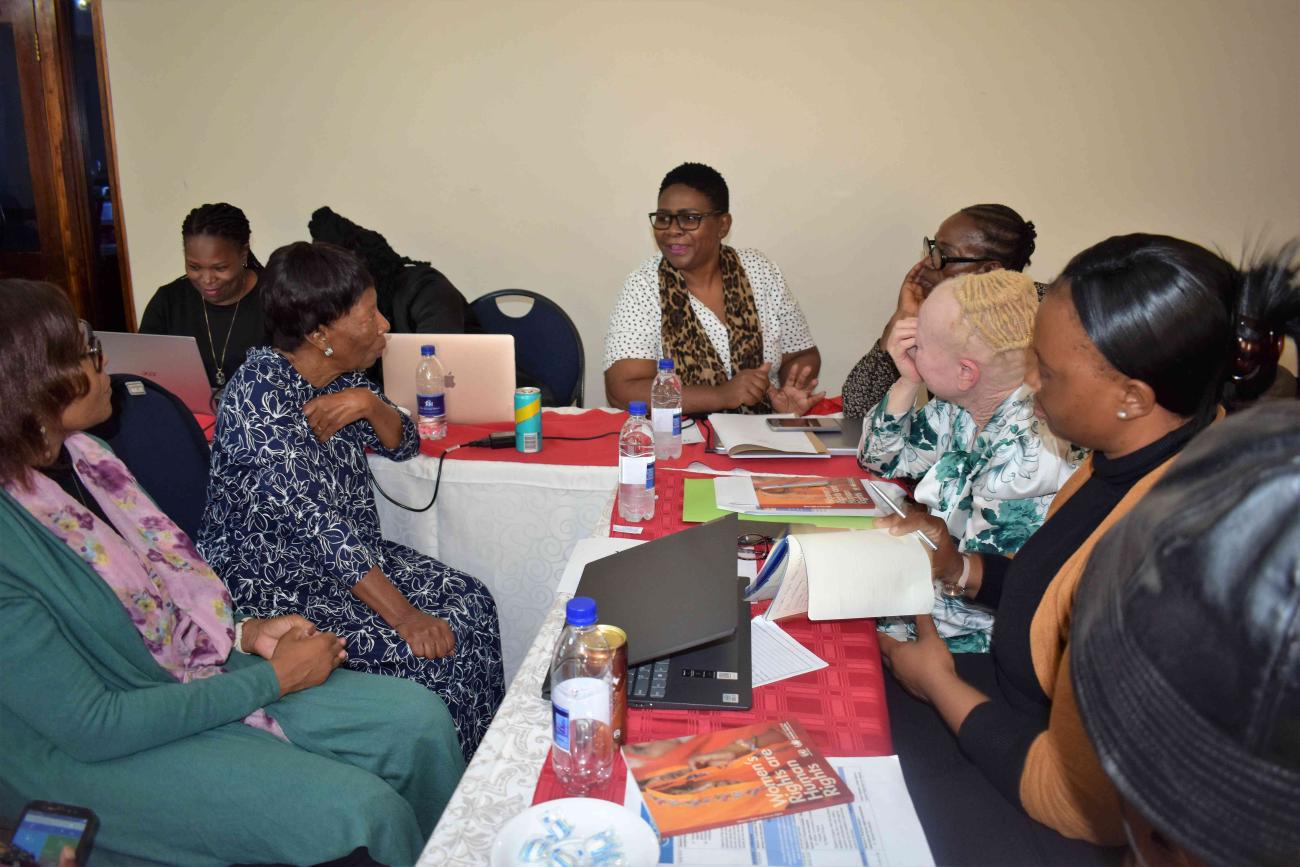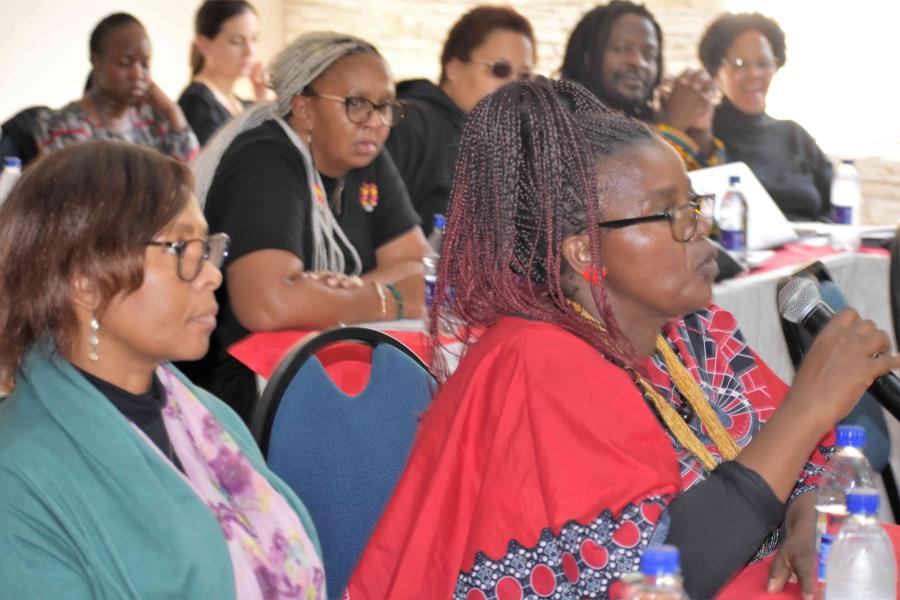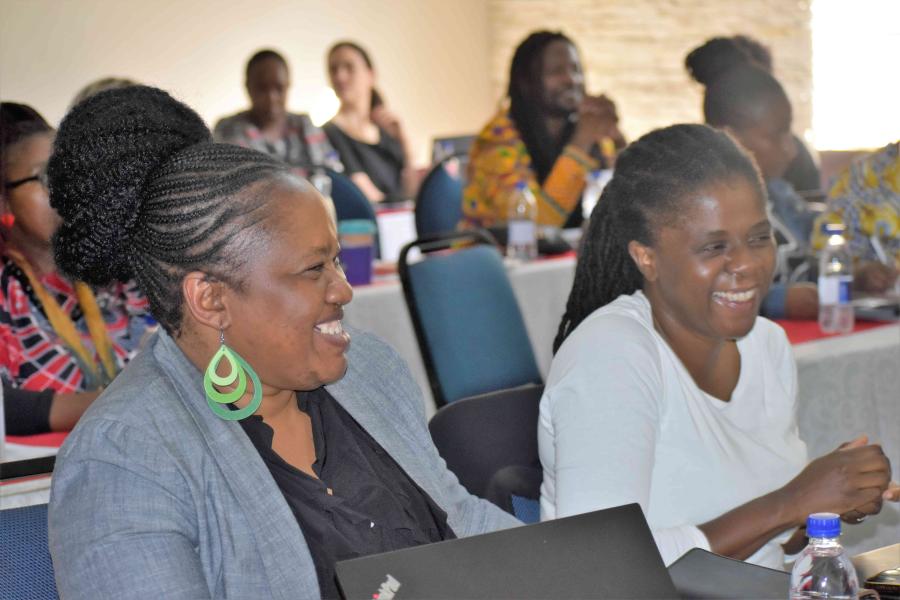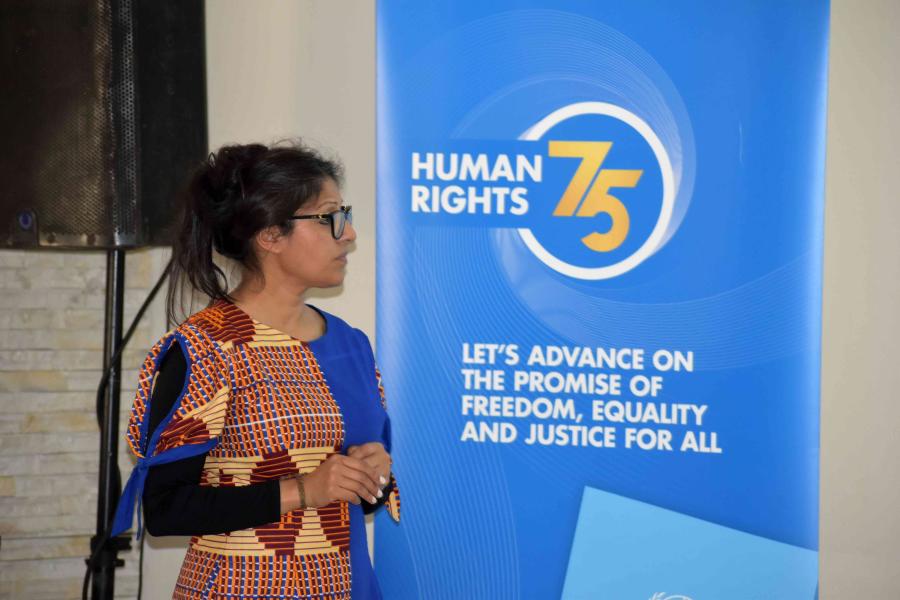Empowering women to participate in public spaces

OHCHR and CANGO, with support from the Embassy of Switzerland, empower women to rise and participate in public spaces, including politics.
The Office of the High Commissioner for Human Rights (OHCHR) Southern Africa, in collaboration with the Coordinating Assembly for Non-Governmental Organisations (CANGO), hosted a two-day workshop in Manzini, Eswatini, to enhance women’s participation in public spaces, including politics.
The workshop, held at the George Hotel in Manzini on 7-8 June 2023, was supported by the Embassy of Switzerland.
Enhancing women’s participation in public processes, included their engagement with the United Nations and regional human rights mechanisms.
The workshop provided a platform for women to exchange and reflect on the challenges they face to participating in political and public life. It exposed participants to national, regional, and international norms, standards, and entry points for engaging with human rights mechanisms and enhanced their capacity to address gender-specific barriers to their work in contributing to sustainable development.
Key speakers included Thembinkosi Dlamini, Executive Director at CANGO; Nonhlanhla Dlamini, Executive Director at Swaziland Action Group Against Abuse (SWAGAA); Faiza Mohamed, Africa Regional Director from Equality Now; Hilary Gbedemah, a Convention on the Elimination of All forms of Discrimination Against Women (CEDAW) Committee Member; Laila Nazarali, Senior Human Rights Adviser at UNRCO Eswatini; and Reem Alsalem, United Nations Special Rapporteur on Violence against Women, its causes and consequences.
Historically, women have been excluded from political life and participation in public affairs. Across the globe, women still face several obstacles to effectively claiming their right to participation and they are still under-represented at all levels of decision-making. These obstacles include, institutional resistance to women’s participation and inclusion in decision-making; practical difficulties to women’s participation, such as lack of access to identity documentation, restricted mobility, fewer resources or time to participate, especially when outweighed by social norms that keep women largely responsible for domestic work and child care; the perpetuation of gender-based stereotypes that suggest women should not participate or have a role in public affairs; and violence against women in politics, which precludes women from exercising their political rights.
Thembinkosi Dlamini touched upon the unequal distribution of power between men, women, persons with disabilities, and members of the LGBTQ communities in Eswatini with regards to land rights, gender-based violence and the importance of establishing an Equity and Inclusion Framework. He, along with other speakers, stressed the indivisibility of rights.
On a national level, Nonhlanhla Dlamini from SWAGAA highlighted how the law and Constitution of Eswatini is not in compliance with international law with regards to women’s rights in Eswatini. For example, according to s.43 (1) of the Constitution:
Citizenship by birth, “A person born in Swaziland after the commencement of this Constitution is a citizen of Swaziland by birth if at the time of birth, the father of that person was a citizen of Swaziland in terms of this Constitution”.
Faiza Mohamed, centering her talk on a regional level, shed light on the African Charter and the Maputo Protocol. She lauded the Maputo Protocol as the most comprehensive legal instrument on women’s rights globally. It complements the African Charter which fails to recognize the socio-cultural and structural barriers that impede women from fully enjoying their right to political participation, unlike the Maputo Protocol. “However, much work needs to be done for countries to fulfil their obligations under the Maputo Protocol,” she said.
Another major theme of the event was ensuring men and boys’ participation in bringing about positive change. While tackling issues on an international level, Hilary Gbedemah, CEDAW Committee member, raised some important questions as to why and how we socialise in our communities that lead to fractured systems of power that work against women’s rights. Why do we women socialize our men to be risk-takers rather than our daughters? After all, “It is not about how they (men) sit in Parliament, but rather, how they (boys) sat in kindergarten.”
The workshop provided an opportunity for networking and hope, as well as enthusiasm to work towards a more just, and equal Eswatini through gender equality and women’s empowerment.







